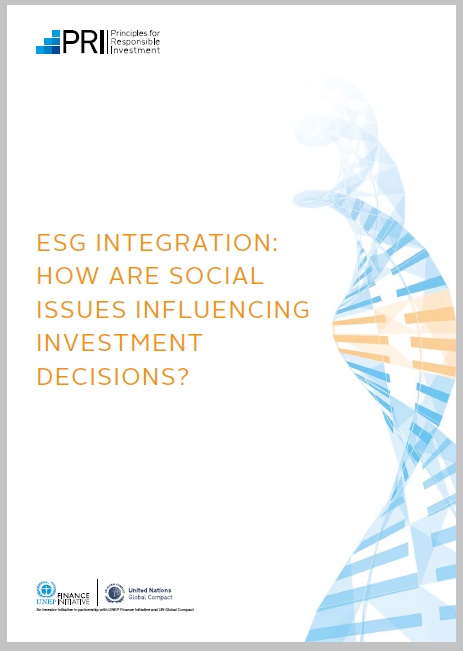ESG integration - How are social issues influencing investment decisions?
INTRODUCTION
In recent years, there has been an increasing awareness of the financial benefits of integrating ESG factors into investment processes. While this has typically focused on environmental and governance factors, understanding the importance of social issues is gaining momentum. Increasingly, asset owners, investment managers and sellside brokers are applying a social lens towards corporate value to recognise the extent to which social issues can impact financial performance, risks and returns.
INTEGRATING SOCIAL FACTORS: THE BUSINESS CASE
The business case for integrating social issues is clear. A company’s supply chain is less likely to be stable if it has poor labour practices and human rights violations. Operational performance may also be weakened by increased worker turnover and decreased worker motivation and productivity.
By effectively managing social issues, companies can:
■ secure access to environmental resources;
■ build human capital to secure a motivated, productive and skilled workforce;
■ benefit from a competitive advantage in the market;
■ strengthen its supply chains.
INTEGRATING SOCIAL FACTORS: HOW CAN IT BE DONE?
Integrating ESG factors into analysis of listed equity investments is the most widespread responsible investment practice in the market today. Recognising that social issues are inherently more qualitative, investors often find it challenging to integrate them as they are not as easy to quantify. As a result, it can make it more difficult for investors to showcase the financial impact social issues have on risks and impacts for long-term investments.
This guide highlights the methods investors can use to integrate social issues into listed equity investments. It shows how a range of social factors can be applied to different integration techniques.
BREAKING DOWN THE CASE STUDIES
The case studies in this guide demonstrate that practitioners are successfully integrating social issues into fundamental analysis and that investors can treat social factors in the same way as any other financial issue with existing quantitative methodologies. Social factors can be integrated through a range of integration techniques, including revenue, operating margins, capital expenditure, discount rate and scenario analysis. Social factors are also material to many sectors and industries, as demonstrated in the table below which lists the case studies within this document.
To download the full report, please click here.

